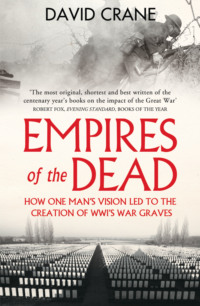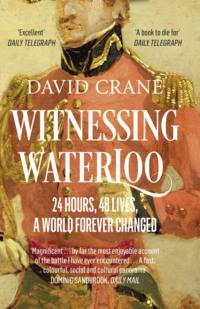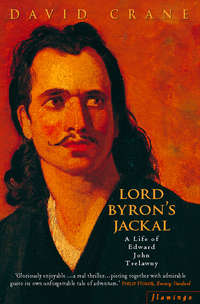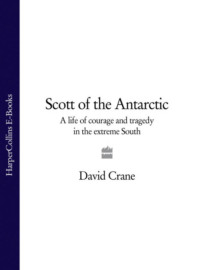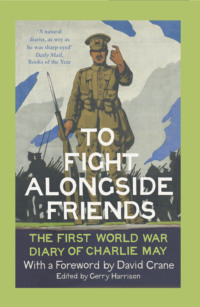
Полная версия
Men of War: The Changing Face of Heroism in the 19th Century Navy
Captain Westphal was particularly conspicuous in his zeal and success towards the effecting of this important object; he having, by the utmost perseverance, skill, and exertion, hove the ANACONDA over a bank nearly five miles in extent (upon which there were only eight feet of water), into Lac Borgne, and there occupied a station that enabled that sloop to render the most essential aid and protection to the open boats conveying troops and supplies from the fleet; which were frequently rescued by her assistance from the imminent danger to which they were reduced by the severity of the weather.
With Jackson’s defenders now entrenched behind a strong defensive wall stretching from river to swamp, however, and his right flank supported by the naval guns of the Carolina and Louisiana, Pakenham delayed his final assault until more artillery could be brought up from the fleet. Under the command of Sir Thomas Troubridge, a naval brigade that included Hastings dragged and canoed their cannon up from Lake Borgne, and on 27 December – using the hot shot that would become so dear to Hastings’s heart – set fire to the Carolina and blew her out of the water in a matter of only minutes. ‘His conduct as a Gallant, able, attentive, Obedient, and Zealous young officer, claims my highest approbation,’ Westphal wrote of Hastings’s part in the action. ‘On several occasions his zeel [sic] & activity attracted the notice of Sir Thomas Troubridge, who commanded the Brigade of Seamen and of Lt Col Dixon commanding the artillery, both of whom caused me to express to Lieutenant Hastings (on several occasions) their thanks for his persevering activity, and promptitude in the execution of the several tasks with which he was entrusted.’
The spectacular destruction of the Carolina was the last real British success of the campaign. A humiliating defeat in an artillery duel on 1 January gave a grim pointer to what was to come, but it was a warning wasted on Pakenham. Reinforced by the arrival of two more of Wellington’s best regiments he ordered a frontal assault against the entrenched American line for dawn on the eighth. It was an assault that Hastings and the navy were well out of. The failure of a diversionary attack across the river to go off on time, or an appalling blunder that left the forlorn hope without fascines or scaling ladders, might have deterred another commander, but Pakenham was made of sterner stuff. With the morning light already streaking the Louisiana sky he gave the command for the attack to begin.
The previous day Jackson had watched British preparations for the battle, and as the rocket signal went up, and the fog cleared from the British troops advancing in close order, the turkey shoot began. At five hundred yards the first twelve-pounder exploded into life, followed by the whole of the artillery and – at two hundred yards – by Jackson’s Tennessee riflemen. There was no missing and no escape. The attackers were soldiers who had fought their way up Spain under Wellington, but under the sustained fire of the whole American line the right began to edge left and the British assault to falter. General Gibbs got to within twenty yards of the defences before he fell with four bullets in him. A few even made it as far as the ditch in front of the earthworks before they died. As the troops fell back, they found themselves caught between their own guns behind them and the American in front in a chaotic shambles of their commanders’ making. And for once British troops were not going to bale their generals out. ‘For shame!’ cried Pakenham, trying to rally them again, ‘Remember you are British soldiers!’ but it was no use. As he spurred them on a bullet shattered his knee and brought down his horse. Mounting another, he was immediately hit again in the groin and spine and collapsed to the ground, his last, unavailing orders expiring on his lips with him.
This was the end of the assault, and at just 8 o’clock, and in spite of the eventual success of the diversionary attack, the effective end of the battle. At the cost of eight – or perhaps thirteen – casualties, the Americans had killed two thousand British troops in the most lopsided defeat ever inflicted on British arms. And with the coming of peace there would be no time for redemption. ‘Hoisted the English and American ensign in conjunction,’ reads the Anaconda’s log for 16 March 1815, ‘& fired a grand salute in commemoration of Peace with America.’
It was a bitter end to a criminally pointless war. And for Hastings it was not just the end of the war but, except for the odd skirmish with Malay pirates in the Far East, the last time he would see action as a Royal Navy officer. Family interest and family money would keep him from the fate of those thousands of lieutenants thrown on the scrapheap by Waterloo, but from now on he would have to go looking for his excitement. ‘I feel that in addressing your Lordship I am taking upon myself an unwarrantable liberty,’ he wrote to Lord Melville, the First Lord of the Admiralty, after sixteen months in the Orlando on the Eastern station and the best part of an uneventful year aboard the Pelican in the West Indies had brought him again to London with his begging bowl out:
perhaps no excuse can easily justify it; I throw myself on your Lordship’s well known clemency and trust that you will not attribute it to impertinence, but an anxiety to attain that eminence in any profession which is the object of every enterprizing officer … this has emboldened me to solicit employment in the expedition which your Lordship may, perhaps, decline, to prosecute their discoveries to the Northward at a favourable season. If I am so happy as to enjoy a place in your lordship’s good opinion, sufficiently favourable to induce you to grant my request, no exertion on my part shall be wanting to qualify myself for this arduous undertaking. Till the period of sailing my labours shall be directed to the acquisition of such knowledge as is likely to prove serviceable – you may perhaps find those more capable but none more devotedly willing to acquit themselves with credit.
It is a fascinating thought that Hastings might have ended up in the North-West Passage – the cradle and the grave of so many nineteenth-century naval reputations – but while there was no vacancy on that expedition Melville had not forgotten him. On the return of the Pelican in 1818 Hastings had gone up to Willesley, and while he borrowed his brother’s gun and played the country gentleman – ‘Frank is trying to be a sportsman,’ his mother reported in a spidery hand made worse by gathering blindness, ‘he has killed a hare & brace of Partridges’ – Lord Melville’s goodwill filtered down through the channels of Admiralty preferment: ‘Lieut F. Hastings to be appointed to the Frigate destined to relieve the Forth,’ a minute for 9 January 1819 reads, ‘it being Ld Melville’s intention to recommend the Lieut to the Bd on that station.’
A fortnight later, on 23 January, the appointment was ratified: ‘Lieut Frank Hastings to be appointed to the command of the Kangaroo Surveying Vessel at Deptford.’ Within another two weeks Hastings was in London, and on 8 February he began entering men into his new ship. At just twenty-four, he had his first command. Four months later it would come to its disastrous end in the harbour of Port Royal. How different the history of the nineteenth-century navy, possibly of Arctic exploration, might have been had John Barrow found room for him on his expedition to the North-West Passage is a matter of poignant speculation: how different Greek history would be is a matter of fact.
V
On 6 March 1821, a Russian general of Greek extraction crossed the River Pruth from Bessarabia into Moldavia, raised his standard emblazoned with a phoenix, and called on the Christian populations of the Ottoman Empire to throw off their Turkish oppressors.
At first glance, the banks of the Pruth might seem a perverse place to start a Greek revolution, but at the beginning of the nineteenth century the abject condition of Greece itself meant that any revival would have to come from without. In the early fifteenth century there had been one last, great flowering of Byzantine culture at Mystra in the southern Peloponnese, but over the four hundred years since Mystra’s fall the geographical area of what is now modern Greece had sunk into a state of oppressed and degraded misery, its traditions of freedom withered to the bandit culture of the mountain regions and all memory of its political and artistic birthright buried under centuries of foreign tyranny.
It was inevitably from western Europe, where there had been a rebirth of scholarly interest in Greek art, that this memory was given back to Greece and to the scattered communities of the Greek diaspora. Throughout the eighteenth century these colonies had flourished at ports and cities throughout the mercantile world, and as this renewed sense of identity became a fixed part of the émigré consciousness, the fashionable Hellenism of the dilettante was transformed into a heady cocktail of political theory, revolutionary fervour and Byzantine nostalgia.
For the nineteenth-century Greek, it was supremely Constantinople – the ‘polis’ – and not Athens that was the historical centre of the Greek world, and it was no coincidence that the movement for Greek freedom found its focus and leadership there. For the best part of four centuries the great Christian families of the Phanar* had arrogated to themselves all the tasks that Muslim indolence or fastidiousness would allow them, and it was the wretchedly inept son of one of these princely families, the one-armed Alexander Ypsilanti, who in the spring of 1821 crossed the Pruth to spark off a Greek revolt that only the Turks themselves cannot have seen coming.
Ypsilanti’s campaign was a fiasco – by June it was over and he had shamefully fled to Austria – but as news of the uprising spread and the Greek flag was raised on Peloponnesian soil, fantasy had suddenly become fact. For centuries Greeks and Turks had been living within the empire side by side, and within weeks the Ottoman-Greek world was in flames, as community turned on community in a religious and racial war of a hatred and savagery that would have beggared the imagination of a Goya.
And as massacre followed massacre – Athens, Constantinople, Tripolis, Smyrna, Nicosia, Kos, Rhodes – it was inevitably the plight of the Greeks that excited the sympathy and indignation of the Christian West. In its earliest days European philhellenism was largely an academic pastime, but under the influence of Byron’s verse it became a popular cause that within months had inspired the first volunteers – Swedes, Danes, Bavarians, Saxons, Prussians, Italians, Russians, French, British and Americans – to raise, beg and borrow the money to make their way east to save the cradle of Western culture and political freedoms. ‘Fair Greece! Sad relic of departed worth!’ wrote Byron,
Immortal, though no more; though fallen, great!
Who now shall lead thy scatter’d children forth,
And long accustom’d bondage uncreate?
Not such thy sons who whilome did await,
The hopeless warriors of a willing doom,
In bleak Thermopylae’s sepulchral strait –
Oh! Who that gallant spirit shall resume,
Leap from Eurotas’ banks, and call thee from the tomb?
‘We are all Greeks now,’ Shelley proudly proclaimed from the cosy safety of Italy, but if this sounded good, what was actually meant by it would have been hard to define. Among the first volunteers who sailed out to fight were refugees from monarchical despotism who would have thrilled to the language of Shelley’s ‘Hellas’, yet side by side with them were academic dreamers and romantic fantasists, Byronic poseurs and aristocratic democrats, deluded Benthamites and disenchanted Bonapartists, charlatans and orthodox co-religionists, fortune-hunters, mercenaries and unemployed and unemployable military professionals, the flotsam and jetsam of a whole European generation who had known nothing but war. ‘What a queer set,’ the American doctor, Samuel Gridley Howe, one of the greatest of all philhellenes, wrote of these men – heirs at once in their mix of naïveté and depravity to the Children’s Crusade and the condottieri of fourteenth-century Europe. ‘What an assemblage of romantic, adventurous, restless, crack-brained young men from the four corners of the world. How much courage and talent is to be found among them, but how much more of pompous vanity, of weak intellect, of mean selfishness, of utter depravity … Little have Philhellenes done towards raising the reputation of Europeans here.’
The disappointment was not all one-way, because if these were seldom the kind of volunteers to inspire the Greeks with a keen sense of gratitude, the feeling of disillusionment on their arrival was invariably mutual. The one belief that sustained most philhellenes was the conviction that they were defending the heirs to ancient Greece, and when instead of Pericles and Epaminondas they found a nation of mountain bandit warriors as ready to behead, baptise or sodomise their Ottoman victims as the Turks were to enslave, circumcise and impale theirs, the revulsion was as intense and irrational as the enthusiasm it replaced.
In the whole history of the Greek War of Independence no more than a handful of foreigners ever bridged the cultural gap between the Greece of the imagination and the Greece of reality, and incomparably the greatest of these after Byron was Frank Abney Hastings. In many ways Hastings belonged to the mainstream of philhellene life, but even as a citizen with a grudge and a fighting man without a war there were crucial differences about him – differences of wealth, talent and temperament – that equipped him to survive a Homeric world of factionalism, greed, treachery and violence with a resilience that few other foreigners could match.
Glory, revenge and the joy of battle – the brazen tripod that holds up the Homeric world – these were the urges that drove Hastings, and the Greek War was as much made for him as he was for the Greeks. Like any good Whig aristocrat he was a firm believer in Greece’s ancient liberties, yet if he fed off her classical past it was not off the Greece of Demosthenes or Aristogeiton – ‘Harry Stodgiton’ as one enthusiastic Scottish MP called him – but off an older and more elemental code. ‘That Glory is in a great measure the object I propose to myself I cannot deny,’ he would tell Lord Byron, ‘& I must acknowledge that independent of the satisfaction I should receive from establishing a European reputation … ’twould be delicious revenge to prove to those who have deprived me of my rank in the British service that the object of their persecution is not altogether devoid of Naval merit.’
There seems no way of recovering the exact steps that led Hastings to Greece – he was in France, learning the language and ‘qualifying’ himself for the kind of foreign service Cochrane had made so glamorous in South America when war broke out – but the one certainty is that without the humiliation of the Kangaroo he would never have gone. ‘My lord,’ he had written pathetically to Lord Melville, ‘only those who like me have thirsted for glory, who like me have lived in the anticipation of fame can tell how intolerable it is to find the tender bud nipped when about to bloom.’
It is arguable that Hastings never recovered from the humiliation of the Port Royal inquiry, and he certainly emerged from it a different man, less anxious to please, less open to people and in some ways less likeable than the small lad who made friends so easily in Neptune. It is possible of course that this was no more than the natural consequence of age, but between the ‘gentlemanly’ and ‘exemplary’ young officer all his captains spoke of so warmly in their testimonials and the often harsh, judgemental, self-sufficient loner who we at last get to know in Greece it is hard not to detect the shadow of the Kangaroo.
For all his sense of rejection, however, Hastings’s dismissal from the service only confirmed and strengthened in him that blinkered obsession with his profession that had never left room in his life for much else. It is clear from the early diaries of Thomas Fremantle that the brothels of Naples were a staple part of a Mediterranean officer’s world, and yet apart from a single woman’s name scrawled in a pocket notebook – and she turns out to have been a boat moored in the Thames – there is not even a momentary hint among Hastings’s surviving papers that he was any more interested in Mediterranean women than he was in his father’s housemaids or those ‘pretty daughters’ of Halifax who ‘made such sad havoc with the hearts of both the army and navy’.
Hastings was capable of strong and loyal male friendship – Edward Scott in the Orlando, to whom he would leave his sword, George Finlay later in Greece – but there seems no reason to read any more into this than into anything else. It is always possible that letters will turn up to reveal a lover or a brace of children somewhere in France or the Morea, but until they do nothing is going to crack the adamantine image of a man who sublimated all his energies and ambitions – sexual, social, emotional, professional – into the all-consuming business of warfare.
It was not that there was ever anything cold about Hastings – the Greek marble bust of ‘ ’ gives very little away – on the contrary, he was a generous and highly-strung creature of endless moods, passions, angers, noble impulses and nervous energies. To the end of his life he would always crave recognition and fame, but as he sat in his metaphorical tent brooding or raging over real or imagined wrongs, his notion of achievement – like his idea of justice – went along with a profound sense of self that needed no grubby endorsement from the common run.
In this fierce and proud individualism, this refusal to sit at any bar but that of his own conscience, Hastings was supremely a child of his time – this is, after all, the age of Byron – and onto the natural hauteur of the eighteenth-century aristocrat was grafted the isolation of the romantic. ‘It was not out of consideration for others, but respect for himself, that he always bluntly told the truth,’ the philosopher-novelist William Godwin wrote of his fictional hero Borromeo – a portrait of another Byronic philhellene, Edward Trelawny, that in important respects is a far truer likeness of Hastings – ‘… Yet this man was eminently a moral being. He had certain rules of right to which he rigorously adhered, not for the sake of good to result to others, but, as certain theologians inculcate in their systems, from the simple love of justice, and without care for the consequences.’
It was, then, this Hastings – age twenty-seven, height five feet seven inches, eyes blue, hair and whiskers fair, forehead bold, nose ‘grand et aquilain’, as his French passport describes him – who in March 1822 boarded a Swedish merchant vessel at Marseilles bound for the eastern Mediterranean and Constantinople. From the earliest days of the revolt Marseilles had been a popular staging post for philhellenes, and travelling with him in the Trontheim was another volunteer, a coarse-grained but insinuating anglophobe American zealot blessed with just the right blend of physical toughness and moral laxity to equip him for the intrigues, warfare and vermin ahead, called George Jarvis.
From his father’s will it is clear that Hastings had volunteered without his blessing, but with the security of his mother’s marriage settlement – worth £5,000 – behind him and £300 in gold concealed round his person, he was in a strong position to travel on his own terms. In a typical piece of generosity he had paid for Jarvis’s passage to Greece, and on the evening of 3 April, after a journey of just over three weeks, the two men were landed with all their baggage on the barren northern tip of Hydra off the north-east coast of the Peloponnese.
The Greece and the revolution into which Hastings and Jarvis sailed in the spring of 1822 was in as precarious a state as it had been at any time since Ypsilanti had raised his standard. In the first months of the war the Ottoman government had been too busy with other problems to give the rebels its full attention, but with Athens and the historical fortresses of Nauplia, Patras, Rion, Modon and Coron – the ‘eyes of Venice’ – still in Muslim hands, and two Ottoman armies massing in the north-west and north-east to revenge the massacres of 1821, no newly arrived volunteer could be quite sure how or where he would find the Greece he had come to save.
And if the Turks were at last taking their war seriously, the Greeks were no nearer presenting a unified and coherent front than they had been in the first confused days of revolution. At the beginning of 1822 an Assembly at Epidaurus had drawn up a modern constitution for the country, but while the laws might have been framed in the image of Greece’s first president – the educated, frock-coated, bespectacled, Phanariot exile Alexander Mavrocordato – real power still lay with the island merchants, local primates, captains and klephtic chiefs whose loyalty to a central government or a united Greece was as notional as the constitution itself.
Hastings was not certain, until a group of islanders materialised out of the rocky landscape, whether Hydra was a part of the revolution, and even the offer of a boat and a guide to the town was not sufficient to still his suspicions. He had served long enough in these waters as a midshipman to be almost as wary of Greeks as of Turks, and when it transpired that there was room in the boat only for Jarvis and their baggage, he prepared himself for the worst. ‘I was amongst three,’ he wrote in his journal, ‘each had a knife – it is true I was armed “jusqu’au dent” but before I could have cocked a pistol, the man next me might have stabbed me & there appeared every probability I should pass the night in this bay – I therefore resolved to abandon my effects to their fate & go over land to the Town.’
This was easier said than done, but weighed down by his guns, sabre and gold, he hauled himself up the two hundred feet of almost sheer cliff and, ‘fatigued to death’, finally stumbled across a shepherd’s cot ‘and made signs for water’. For the first time since his landing he came across the other side of the Greek character, and strengthened by bread and cheese and the ‘real disinterested hospitality’ of the shepherd, made the last hour’s ‘painful march’ across country with life and money still mercifully intact.
When the sun rose the next morning, Hastings found himself in one of the handsomest and most prosperous towns in the whole of the Levant. The merchant families of the island had done well out of the economic blockades of the Napoleonic War, and the neat white houses and great Genoese and Venetian residences of Hydra’s ‘primates’ – great names of the revolution like Tombazis and Conduriottis – rose up from its secretive harbour in a natural amphitheatre that provided a gleaming contrast with the scenes of desolation only miles away on the coast of the Morea.
From the first months of the revolution the island had been one of the three centres of Greek naval power, but if Hastings imagined that his professional credentials or his knowledge would secure him a welcome, he was in for a rapid disillusionment. In the months he had spent in France he had been studying the latest developments in gunnery and ship design, and he arrived full of ideas and innovations, desperate to try out his new sights and paddle boats on an island community equally determined to resist the advice and habits of an English Messiah whose sole experience of command had ended in his dismissal for gross insubordination.
Perhaps only a young English aristocrat could have arrived with the confidence and assumptions that Hastings brought, but at the root of his dilemma was that same cultural gap that every philhellene faced. From the age of eleven he had known nothing but the disciplines and practices of the Royal Navy, and on Hydra he found a world in which war was a matter of profit and not honour, in which captains went to sea when and if they pleased, crews hired or withheld their services at their whim, and any notion of a ‘fleet’ – or cooperation between the islands – was more a voluntary and self-interested association of equals than a patriotic duty.



